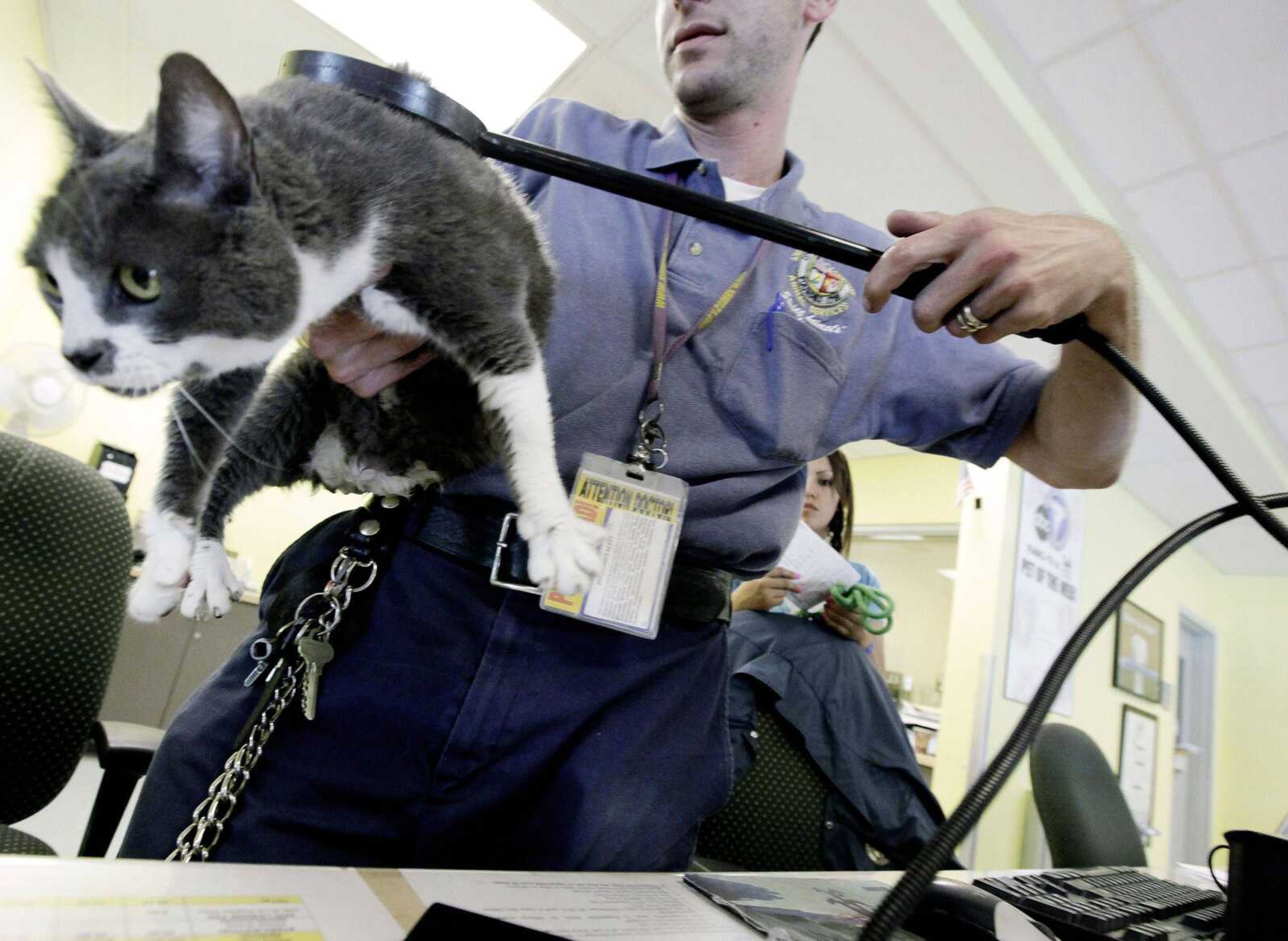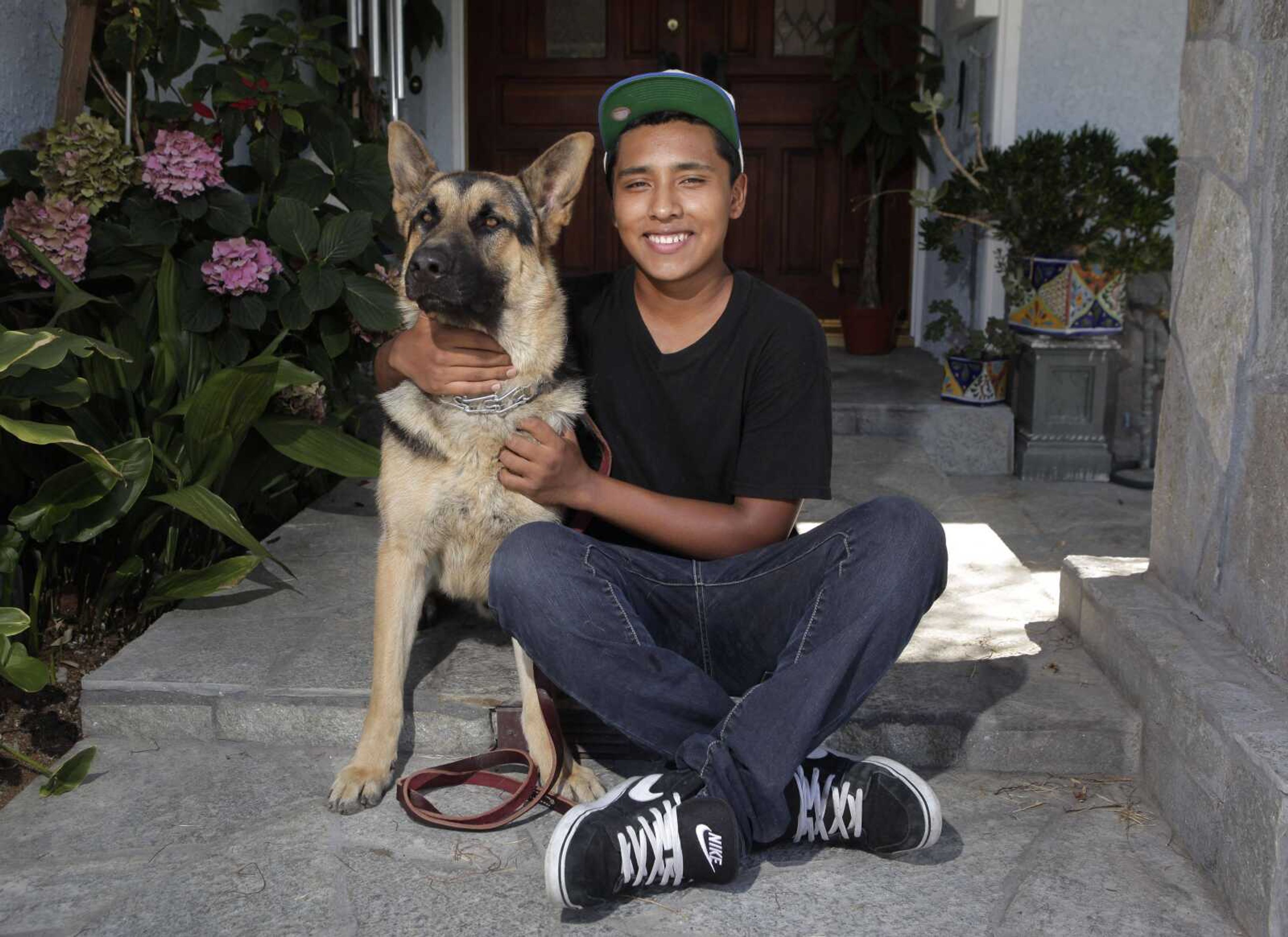California mulls microchip law on pet shelter adoptions
LOS ANGELES -- When Gabriela Dorame of Fullerton, Calif., got a German shepherd puppy named Bolto last year, she and her kids decided to have a microchip implanted in the dog with an identification number that makes it easy to reunite lost pets with owners...
LOS ANGELES -- When Gabriela Dorame of Fullerton, Calif., got a German shepherd puppy named Bolto last year, she and her kids decided to have a microchip implanted in the dog with an identification number that makes it easy to reunite lost pets with owners.
It paid off a day later when the rambunctious puppy bolted through an open door. Animal control officers found the dog, scanned him and knew immediately where he belonged, Dorame said.
In addition to avoiding the heartbreak of lost pets, some lawmakers believe that microchips can save money by cutting costs at shelters where lost cats and dogs are cared for and sometimes euthanized. California lawmakers will vote later this summer on a bill requiring microchips in every dog or cat adopted or claimed from a shelter. If passed, the measure, introduced by state Sen. Ted Lieu, D-Torrance, would be the first of its kind enacted in the U.S., according to Sharon Curtis Granskog, spokeswoman for the American Veterinary Medical Association.
"A few states require shelters to scan but do not require them to actually microchip," Granskog said. "New York has introduced a bill every year, including this year, that would make microchipping dogs mandatory." But the efforts so far have failed.
California taxpayers pay about $300 million every year to impound 1 million dogs and cats, house them and euthanize half of them, according to the Cities and Counties Annual Reports submitted to the state controller. Thirteen percent of lost pets entering shelters in California are reunited with owners, Lieu said, but studies show that number could grow to 75 percent with chips.

Dr. Linda K. Lord, associate dean for student affairs at Ohio State University's College of Veterinary Medicine, studied 53 shelters in 23 states between August 2007 and March 2008. Co-authors included another veterinarian, a humane society representative and a consultant to a Canadian pharmaceutical company, which was also parent to a microchip manufacturer.
They found shelters located owners of microchipped pets in three out of four cases.
When owners couldn't be found, it was because of incorrect or outdated contact information in the chipmaker's registration database, Lord said.
It is up to pet owners to register chips and keep the contact information updated. Costs for a chip and registration run $15 to $75.
"They are not LoJacks or GPS devices," said Aimee Gilbreath, executive director the Los Angeles-based charity Found Animals, which has donated some 200,000 free chips for area pets since 2005. "If you as a pet owner don't keep the information up to date in the database, the microchip becomes pretty useless."
"It absolutely does save animals, but we have to go with what we have," said Wendell Bowers of Los Angeles' East Valley Animal Shelter.
Microchipping can also help keep track of animals displaced by natural disasters or travel mishaps, as well as help track dangerous dogs and pets involved in custody disputes or criminal cases.
The size of a grain of rice, a microchip is a radio frequency identification device with a unique number. It does not have a battery and is considered inert, but it does have a capacitator, which stores an electrical charge. The chip is injected into the tissue between an animal's shoulder blades.
Microchips do have critics. "We're opposed to the mandatory microchipping of owned dogs. That ought to be an owner's choice. This is like saying we have to tattoo our kids," said Judythe Coffman of Rosamond, president of the California Federation of Dog Clubs.
Stormy Hope, vice president of California Responsible Pet Owners' Coalition in Los Angeles, said in an email that chips can cause cancer or tumors, they can migrate from the spot where they were injected, and the risk isn't worth it since there are other types of identification available, such as tags and tattoos.
In 2007, The Associated Press looked at research on microchips and health and found two published reports detailing malignant tumors in chipped dogs. Researchers said cancer appeared linked to the chip in one case, but the cancer's cause in the other dog was uncertain.
Lieu's bill passed the state Senate 32-6 and is scheduled to go to the House in mid-August. He said there is bipartisan support and he is optimistic it will pass.
Connect with the Southeast Missourian Newsroom:
For corrections to this story or other insights for the editor, click here. To submit a letter to the editor, click here. To learn about the Southeast Missourian’s AI Policy, click here.










